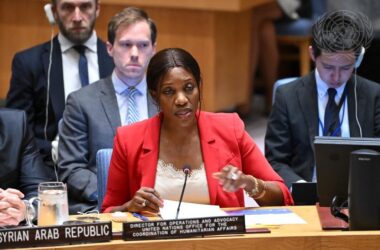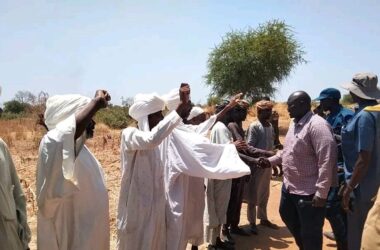By Yiep Joseph
South Sudan HIV/AIDS Commission (SSAC) has voiced concerns over low funding, emphasizing the urgent need for government to intensify its efforts in realizing its strategic plans.
Compounding the issue is the recent aid reduction by the United States of America, prompting the commission to stress the importance of all stakeholders supporting their strategic plans.
Addressing journalists on Tuesday, Dr. Esterina Novello, chairperson of the South Sudan Aid Commission, called upon the government to fund their strategic plans.
“We have a four-year strategic plan that requires $300,000,000 United States Dollars for implementation, and this can be broken down,” Novello stated.
She expressed gratitude to the government and partners for their existing support but highlighted the continued increase in HIV/AIDS cases nationwide due to a lack of awareness, underscoring the necessity for greater support.
Dr. Novello emphasized that the requested budget, if allocated, would significantly benefit health institutions.
The US government recently issued a waiver, directing implementers of existing life-saving humanitarian assistance programs to resume their work.
However, the impact of the previous aid cuts continues to pose a problem across various institutions, including the HIV/AIDS commission.
Peter Garang, the Executive Director of the Network of AIDS Service Organizations of South Sudan (NASOSS), echoed these concerns. He described the future as unpredictable and urged the government to prioritize funding for these crucial programs.
“The future of the HIV response is unpredictable. Starting this year, we may witness an increase in new HIV infections,” he warned.
“We may even see more people dying because, since this dilemma arose, there have been reports of people losing their lives,” he added.
Garang stressed that the recent aid cuts serve as a critical lesson, hopefully prompting the government to provide sustained support to the HIV/AIDS program.
“We know that in March alone, two clients died of AIDS, which should not have happened. So, the future remains uncertain until the government takes decisive action,” he asserted.
He further revealed the persistent lack of essential information about HIV/AIDS among the population.
“I know that even now, some people still believe that HIV does not exist. You can hear people in places like clubs in Juba denying the existence of HIV,” he explained.
Garang acknowledged the contributions of donor partners but emphasized the significant gap that still requires government support.
“We still face a wide gap because the government is not investing any money in HIV interventions. We are at the mercy of donors. I am glad to hear from leaders that this is now their commitment,” he said.
On January 20, 2025, President Donald Trump signed an executive order temporarily suspending US foreign development assistance for 90 days to assess programmatic efficiencies and alignment with US foreign policy.
During this review period, Secretary of State Marco Rubio instructed contracting grant officers to issue stop-work orders (SWOs) for all foreign aid programs.
South Sudan, with nearly 200,000 people living with HIV, heavily relies on foreign funding to maintain its vital HIV care and prevention programs due to limited national budgetary support.
Responding to the funding cuts, Evelyn Letio Unzi, program coordinator for the National Empowerment for Positive Women United (NEPWU), explained the significant impact of the funding suspension from PEPFAR and USAID.
“Every year, NEPWU receives approximately $1 million from PEPFAR for community activities. This funding supports outreach programs, awareness campaigns, and various community initiatives – not direct treatment, but essential services that sustain HIV prevention and care in South Sudan,” Letio stated on Monday.
The immediate consequences of the aid freeze are already evident.
“Since the Stop Work Order was imposed, 1,500 people living with HIV have missed crucial appointments, including receiving their ARV doses. These disruptions in treatment can lead to drug resistance, an increase in new HIV transmissions, and a potential health crisis,” Letio cautioned.
The country’s prevention programs, including condom distribution, awareness campaigns, and access to pre-exposure prophylaxis (PrEP), are also jeopardized by the funding freeze.




